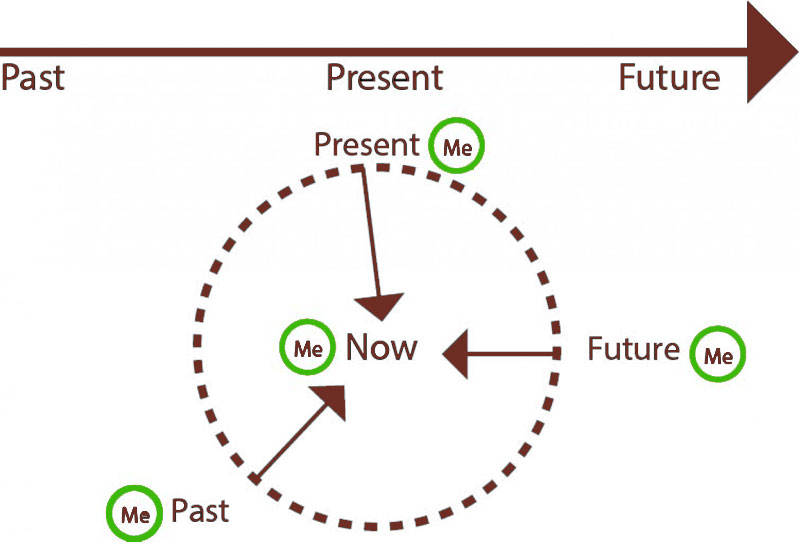
If there is anything considered hardest to define, then time, without a doubt, is a big nominee. Throughout history, scholars from different fields, like philosophy, physics, and more, have developed many and various definitions and concepts of time.
So, what is the time? Is it real or just an intellectual concept created by humans?
Time is a fundamental aspect of human existence. However, for thousands of years, possibly even longer, time has remained one of the most elusive and paradoxical concepts to fully grasp. Generally speaking, time is the dimension along which events unfold, allowing us to distinguish between the past, present, and future.
While we can measure and quantify the passage of time, its true nature remains a mystery that has perplexed philosophers and physicists for centuries.
Time is also often considered the 4th dimension, with 03 spatial dimensions, including height, length, and width. In both the International System of Quantities (ISQ) and the International System of Units (SI), time is a fundamental physical quantity, along with length, mass, electric current, thermodynamic temperature, amount of substance, and luminous intensity.
According to SI, the second (s or sec) is the base unit of time. Other popular units of time we frequently use in daily life to measure and calculate time are the minute, hour, day, week, month, and year, which can all be converted to seconds.

Speaking of concepts of time, the following are three of the most common viewpoints that are really worth checking out:
Linear Time
In everyday life, we often think of time as a linear progression, flowing smoothly in a continuous and irreversible manner: from the past to the present to the future. This concept is reflected in methods or tools used to calculate time, like calendars and clocks. Linear time also forms the basis of how we structure our lives around daily schedules, deadlines, and events.
Cyclical Time
Many cultures and philosophies view time as cyclic, repeating in patterns or seasons. This concept is often associated with natural rhythms, such as the cycle of day and night or the changing of the seasons. In this view, it seems that time is not a linear progression but rather a continuous cycle of renewal and rebirth.
Subjective and objective time
There are subjective and objective aspects of time. Time can be experienced subjectively, influenced by factors such as perception, emotions, and individual experiences. This subjective experience of time can vary, of course, from person to person.
At the same time, time also has an objective aspect, which refers to the measurable and quantifiable units (seconds, minutes, hours, days, years, and others). Objective time allows for synchronization and coordination in various aspects of life.
Time has intrigued philosophers and scientists for so many centuries. Interestingly, each approaches the topic of time from their own perspective. While philosophers have grappled with the nature of time, questioning its linearity, reality, and relationship to consciousness, scientists have delved into the physical properties of time, investigating its role in the universe's evolution and the laws of physics.
Time has been a significant philosophical subject since the dawn of civilization. Renowned ancient civilizations, like the Babylonians and Egyptians, created concepts of time closely tied to their religious and mythological beliefs.
In ancient Greece, Parmenides, Heraclitus, and other contemporary philosophers debated the nature of time. Parmenides, a 5th-century BCE philosopher, argued that time was an illusion, while Heraclitus argued that time was a fundamental aspect of reality, characterized by constant change and flux. These debates laid the groundwork for much of the philosophical discussion about time that has taken place since then.
Plato, the eminent Greek philosopher, associated time with the duration of the movement of heavenly bodies. Meanwhile, Aristotle described time as the “number of movement in respect of the before and after”.
The 1600s and 1700s witnessed the rise of questions regarding whether time was real and absolute among philosophers. If not, was it simply an intellectual concept developed by humans to understand and arrange the sequence of events? These two opposing questions also led to 2 different perspectives about time: Realism and anti-realism.
As for the 19th and 20th centuries, this period saw significant advancements in the philosophy of time that were enormously driven by innovative scientific discoveries and understandings. Immanuel Kant, a German philosopher, introduced the concept of time as a subjective form of intuition, while G.W.F. Hegel, also a German philosopher, emphasized the role of time in historical development.
Scientifically, one of the most influential scientists in the evolution of time concepts was Isaac Newton, who proposed that time, as with space, was absolute, meaning that it existed independently of any observer or reference frame. He also believed that time was a universal entity that flowed at a constant rate.
However, this viewpoint was challenged by Albert Einstein's theory of relativity, which posited that time was a relative concept that varied depending on the observer and the reference frame. According to Einstein's theory, time was not fixed, but rather a variable and subjective.
For centuries, scientists and scholars worldwide have spent extraordinary effort exploring the true nature of time. Studies of time have continued up until now and wonderfully achieved significant achievements through pioneering research in the fields of quantum mechanics, cosmology, etc.
Still, as you can guess, it seems that the definite answers to this inquiry are still not found. Some theories propose that time may be a key aspect of the universe; meanwhile, others hold the viewpoint that time may be an emergent property of more fundamental physical processes.
Concepts of time are indeed fascinating and diverse. Despite centuries of in-depth research and investigation, mysteries have still covered up the nature of time. However, through ongoing research in terms of both philosophy and science, keep faith that fresh insights into time, an essential aspect of human life, will be unveiled someday soon.